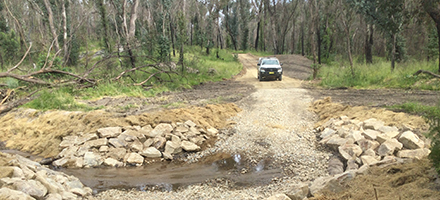A government appointed panel is exploring the idea of ending logging in NSW native forests within four years. The government is under mounting pressure over the impact of its own logging business on nature. Source: Australian Associated Press
The historically divisive issue of taking slow-growing hardwoods from native forests has become even trickier as the government works to deliver its promised Great Koala National Park.
A government appointed panel is exploring the idea of ending logging in NSW native forests within four years.
The government is under mounting pressure over the impact of its own logging business on nature.
The historically divisive issue of taking slow-growing hardwoods from native forests has become even trickier as the government works to deliver its promised Great Koala National Park.
That lines up with the end of existing wood supply contracts from northern forests.
Other options include business as usual, reducing native timber harvesting until other sources are found, or putting native forests under indigenous management with extra supply to come from private and public plantations.
Stuart Blanch is WWF-Australia’s forests expert and says the inclusion of an exit option is a big deal.
“I think this is the first time that a NSW government process has seriously consulted stakeholders on ending native forest logging,” he says.
“I think this is showing there’s enough people in government and parliament who think it’s safe enough to articulate this as a real issue they need to explore.”
Dr Blanch is among those who’ve been consulted and he’s glad the government has created the conditions for an important, overdue and difficult discussion.
“The genie is now out of the bottle regarding completing the transition out of native forest logging to plantations.
“The experience from the shutdown of logging in Western Australia and Victoria is that once a government starts to canvass a full exit, the private sector stops investing, and workers start finding new jobs.”
Dr Blanch says that if an exit is on the cards, the government will need to start planning now so the transition is well funded and well executed.
In a statement, the government said the panel had been tasked with consulting widely on the future of forestry in NSW, with its work to feed into an industry action plan.
“We want input on what forests and a sustainable forestry industry will look like in the next 30 years,” it said.
“Consultation will consider key areas such as the sustainability of forestry operations, the future of all types of forestry (softwood, hardwood, native), environmental concerns, community demand for timber, climate change mitigation and adaptation and more.”






